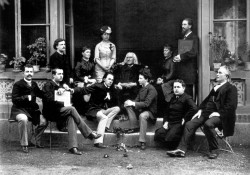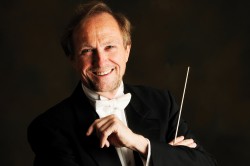It may be partially true that with age comes wisdom. But it is certainly true that with age comes the inability to remember what one went down to the basement to retrieve. Upstairs you trudge again, retracing your steps until your memory is sufficiently jogged — oh right, duct tape — and you are ready to make the frustrating second trip. Perhaps what often passes for wisdom is in fact a mellow, philosophical acceptance of how many extra journeys for duct tape (or garbage bags or whatever) age and failing memory now require.
 Myself, I’m finding that with age comes immaturity. Jokes that made me sneer with contempt in my high-minded teen years now make me snicker and guffaw. I look forward to the ongoing dismantlement of my critical faculties, until seeing Bugs Bunny in drag and Wile E. Coyote repeatedly plummeting into a chasm sends me to the floor, helpless with laughter. But time, memory and the way in which both elements change perception seem to be the themes of a number of this month’s concerts.
Myself, I’m finding that with age comes immaturity. Jokes that made me sneer with contempt in my high-minded teen years now make me snicker and guffaw. I look forward to the ongoing dismantlement of my critical faculties, until seeing Bugs Bunny in drag and Wile E. Coyote repeatedly plummeting into a chasm sends me to the floor, helpless with laughter. But time, memory and the way in which both elements change perception seem to be the themes of a number of this month’s concerts.
On March 3 the Guelph Chamber Choir presents “Remember … Places, people and songs you love.” With the concert’s repertoire focussed around folk songs, spirituals, Broadway show tunes and cabaret songs, audience members will doubtless find themselves recalling specific occasions tied by memory to some specific song.
Toronto’s Bell’Arte Singers have presented a whole series of linked concerts this year (for the complete series see bellartesingers.ca) that evoke this sense of introspection. Their latest March 3 concert, “Classical: Ways of Seeing,” features music by Bach, Barber, Mozart and Brahms, among others. Treating the music almost like visual works of art, this choir asks its audience to not only listen but to ponder the question of what constitutes beauty, balance and classicism.
Another concert evoking a bygone era is the Victoria Scholars’ “The Romantic Gentleman,” on March 4. Here, the audience is reminded not to lose sight of the things that may fall by the wayside in our charge towards modernity. Comprising works by Brahms, Elgar, Gounod, Rossini, Grieg and others, this concert conjures a time of frock coats and muttonchop whiskers, of codes of honour and high-minded behaviour. The title of this concert also raises a difficult, extra-musical question: what standard defines a “romantic gentleman” in the 21st century? Is our new “RG” the man who discreetly refrains from posting on Facebook or Twitter pictures of himself passed out beside a beer bong (merely texting them instead to his closest friends)? Standards have changed, of course. But perhaps attendance at this particular concert should be mandatory for men 25 and under.
 One of English literature’s most poignant evocations of the pangs of memory and the challenges of time and age is Shakespeare’s The Tempest. The playwright’s last play, it contains some of his most powerful poetry, and with lines like “in the dark backward and absym of time,” is generally thought, in part, to be a meditation on the currents and sorrows of Shakespeare’s own life. Chorus Niagara (in pan-Canadian partnership with the Richard Eaton Singers, who work out of Edmonton, and the Vancouver Bach Choir) has commissioned Canadian composer Allan Bevan to create No Mortal Business. This new work takes as its premise the idea that The Tempest (and other earlier works of Shakespeare) were indeed windows into the playwright’s preoccupation with religion, politics, aging and art. Orpheus Choir and Chorus Niagara will combine to make up a 160-voice ensemble to present the work on March 4.
One of English literature’s most poignant evocations of the pangs of memory and the challenges of time and age is Shakespeare’s The Tempest. The playwright’s last play, it contains some of his most powerful poetry, and with lines like “in the dark backward and absym of time,” is generally thought, in part, to be a meditation on the currents and sorrows of Shakespeare’s own life. Chorus Niagara (in pan-Canadian partnership with the Richard Eaton Singers, who work out of Edmonton, and the Vancouver Bach Choir) has commissioned Canadian composer Allan Bevan to create No Mortal Business. This new work takes as its premise the idea that The Tempest (and other earlier works of Shakespeare) were indeed windows into the playwright’s preoccupation with religion, politics, aging and art. Orpheus Choir and Chorus Niagara will combine to make up a 160-voice ensemble to present the work on March 4.
 Two local choirs, on the other hand, embrace and celebrate the passage of time this month. The Toronto Classical Singers, directed by their founder, Jurgen Petrenko, celebrate their 20th anniversary. I have sung on several occasions with this rambunctious and friendly group of singers, and it is a pleasure to salute them at this time. On March 4 they perform Vivaldi’s Gloria and Schubert’s Mass in G.
Two local choirs, on the other hand, embrace and celebrate the passage of time this month. The Toronto Classical Singers, directed by their founder, Jurgen Petrenko, celebrate their 20th anniversary. I have sung on several occasions with this rambunctious and friendly group of singers, and it is a pleasure to salute them at this time. On March 4 they perform Vivaldi’s Gloria and Schubert’s Mass in G.
Tafelmusik Chamber Choir celebrates its 30th anniversary with a series of concerts from March 27 to April 1. Full disclosure: I have also sung with this ensemble and have accompanied student vocalists and instrumentalists on lute and theorbo at the Tafelmusik Baroque Summer Institute. Setting these connections aside, I can state with confidence that TCC is one of the top choral ensembles in the city and possibly in all of Canada. This group has been part of the continuing story of the resurgence of pre-1750 music — a sprawling, international dialogue between scholars, performers and audiences that has revived and uncovered a multicultural wealth of previously forgotten composers and compositions.
The Tafelmusik Orchestra, of which the choir is an offshoot, has been a leader in this ongoing area of discovery. For these concerts, The TCC has commissioned a new piece by Canadian composer James Rolfe, and will also perform works by Purcell, Rameau, Handel, Poulenc and Saint-Saëns.
Anniversaries define the passage of time; so do annual events. Outside of the Jewish community, one of the lesser known holidays is Purim, a real children’s party centred around costumes, games and food. Purim commemorates the story of Queen Esther, one of the great mythic tales of Jewish pride and independence. The Toronto Jewish Folk Choir performs songs in Yiddish, Hebrew, Russian and English at its March 1 “Purim Concert.”
Memory is what helps define tradition — what we remember of the past shapes our present and future. Canada is a young country filled with immigrants, and for many it is the histories and art forms of our ancestral countries that often define us. At the same time, Canadian composers are hard at work creating a repertoire that they hope will help define us anew. Choirs performing concerts that include Canadian works are the Vespera Choir, March 29, the Echo Women’s Choir, March 31, and the aptly named Canadian Singers, who perform in Markham on March 4.
Finally, the choral requiem form, often valedictory in nature, is well represented this month. Fauré’s Requiem, a particularly tender and introspective setting, is performed by two different choirs: Oriana Women’s Choir on March 3 and the Church of St. Nicholas Birchcliffe, March 30. Another requiem setting by a French composer, Maurice Duruflé, can be heard from the Voices Chamber Choir on March 31. The Toronto Mendelssohn Choir performs Vaughan Williams’s Mass in G and Martin’s Mass for Double Choir on Good Friday, April 6. On the same evening the Metropolitan Festival Choir performs Bach’s Mass in B Minor, and the Georgian Bay Concert Choir performs Mozart’s Requiem in D Minor. Canadian composer Eleanor Daley’s excellent Requiem is presented by Mississauga Festival Choir on March 31.
(Venue change - Voices' 31 March concert is now being held at Church of St. Martin in-the-Fields.)
To sum up, this month’s concerts, built around memory and the passage of time, enjoin us to respect the past, so that we may better understand the present and prepare for the future. At least, I think they do. I’d better check my notes …
Ben Stein is a Toronto tenor and theorbist. He can be contacted at choralscene@thewholenote.com. Visit his website at benjaminstein.ca.



